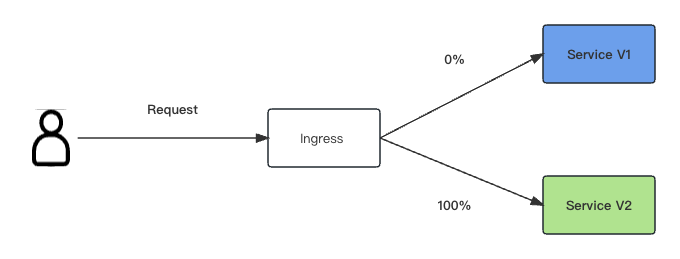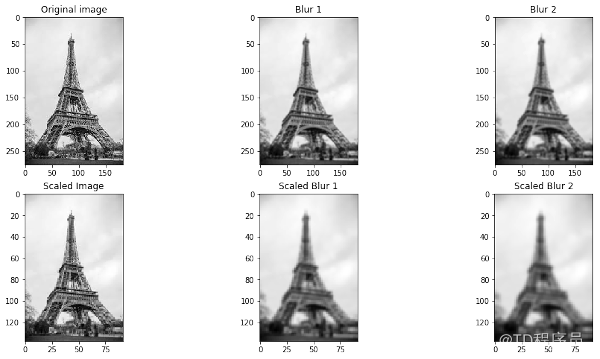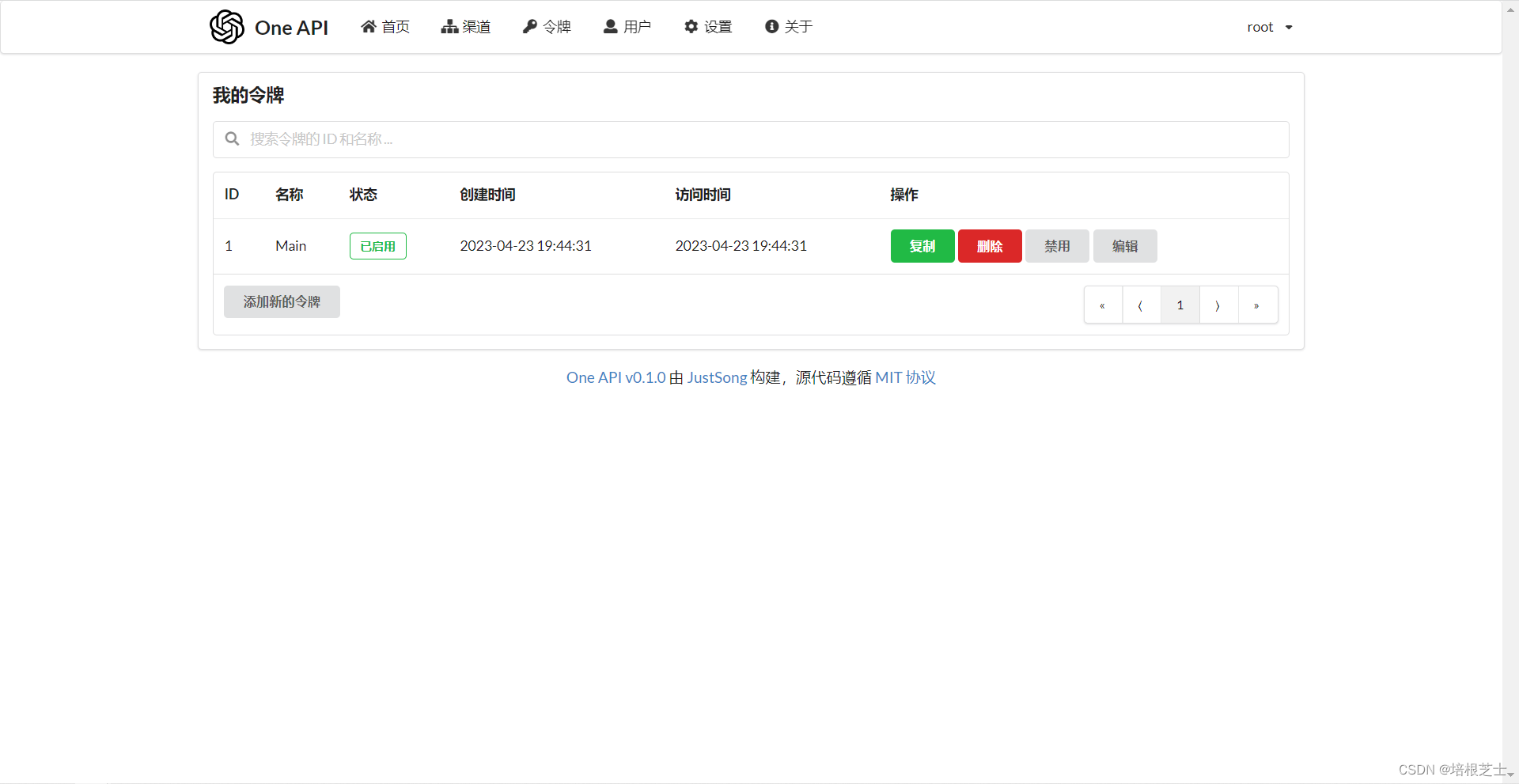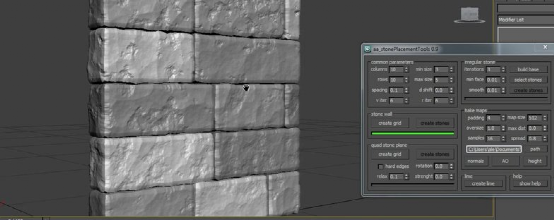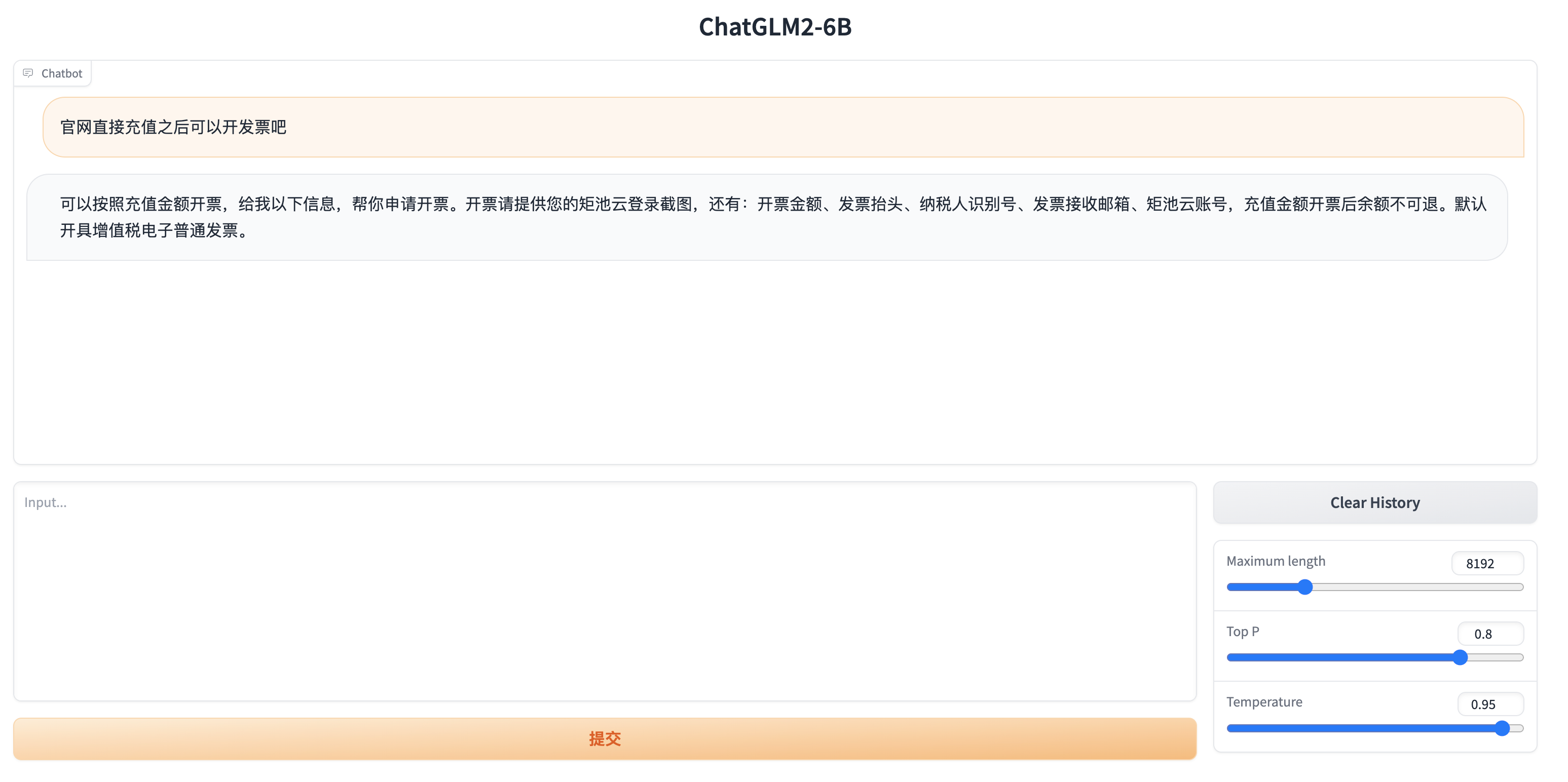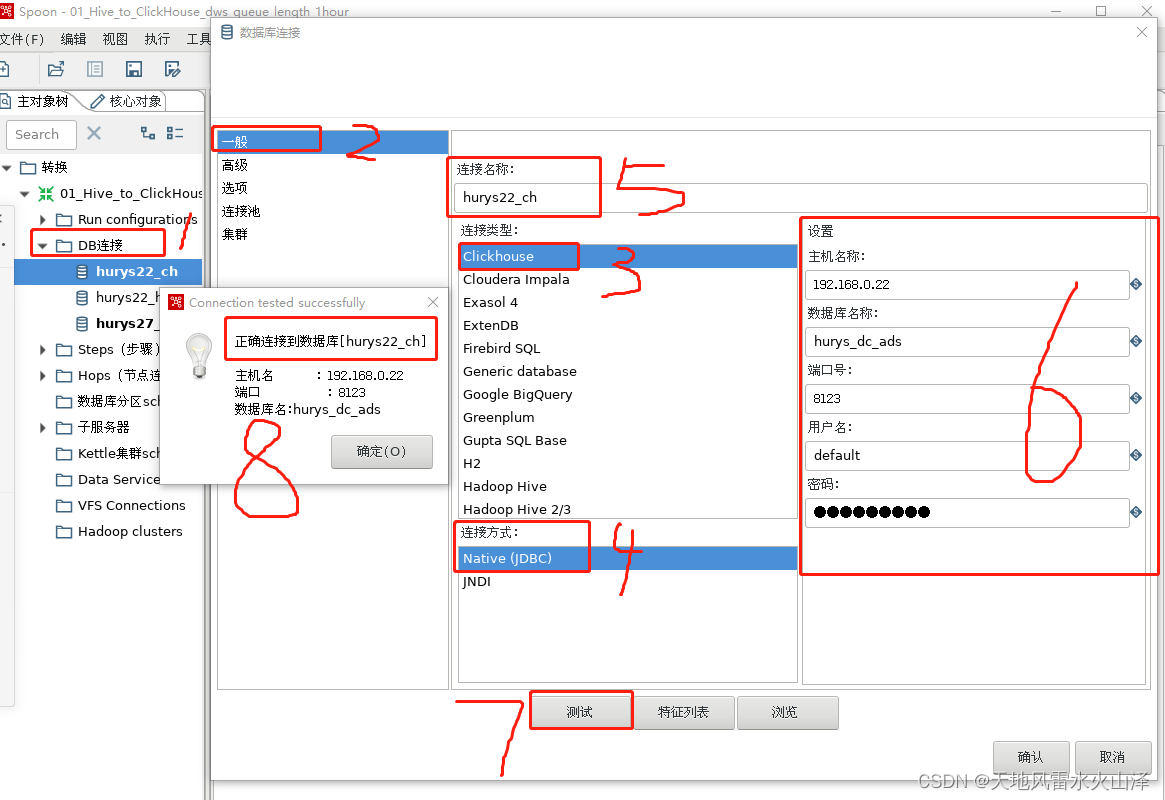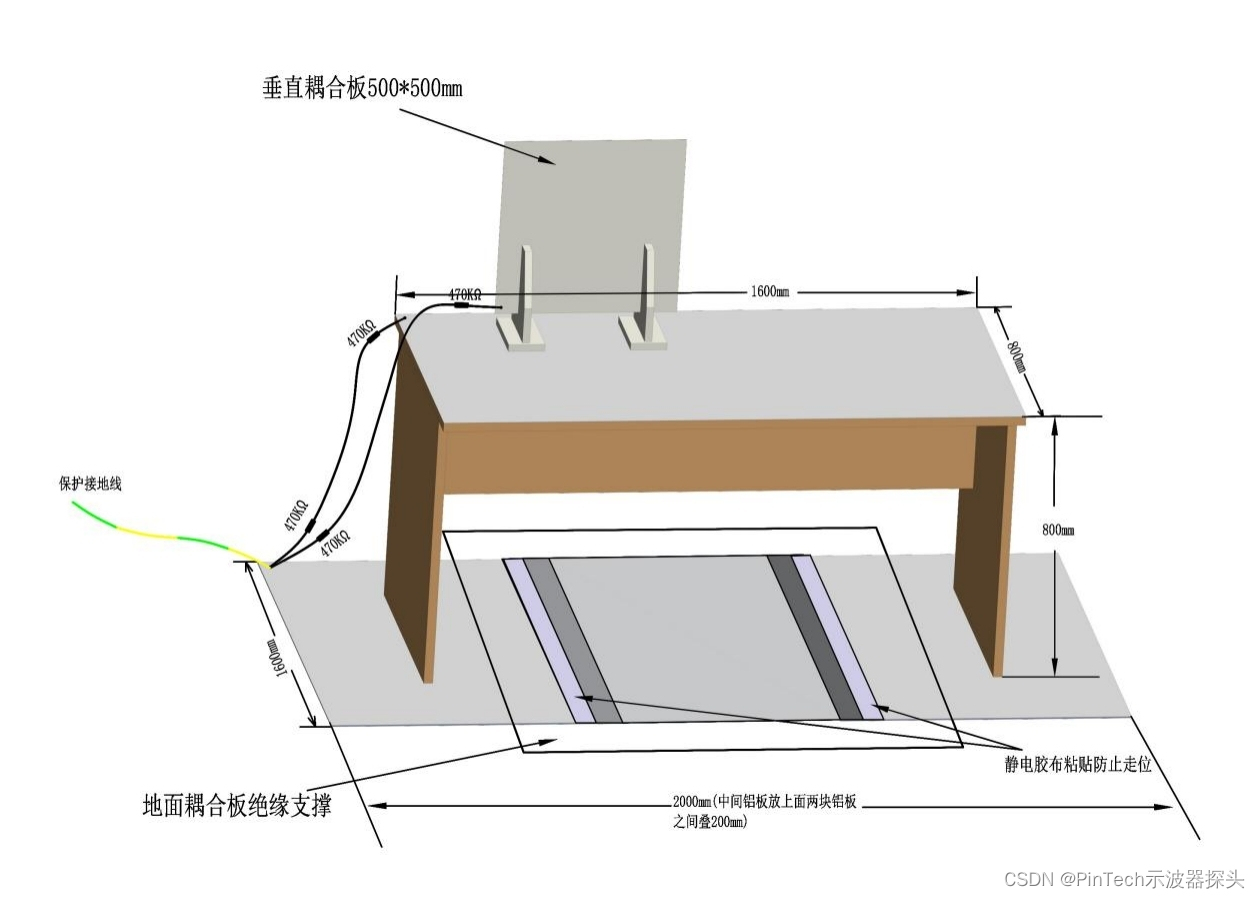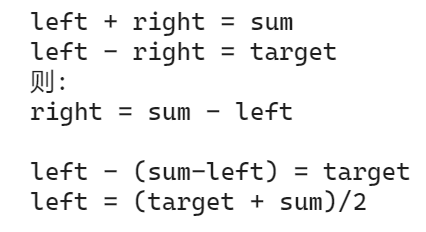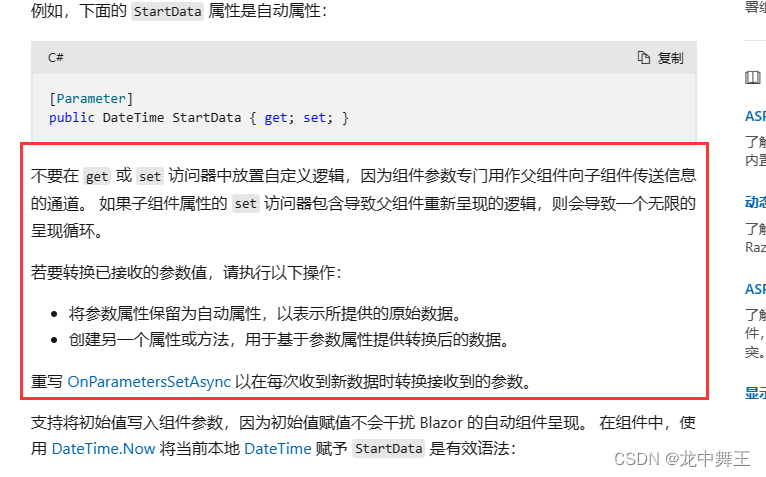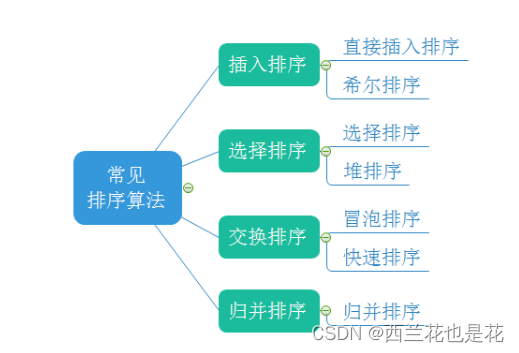给定一个候选人编号的集合
candidates和一个目标数target,找出candidates中所有可以使数字和为target的组合。
candidates中的每个数字在每个组合中只能使用 一次 。注意:解集不能包含重复的组合。

解题思路:回溯+剪枝

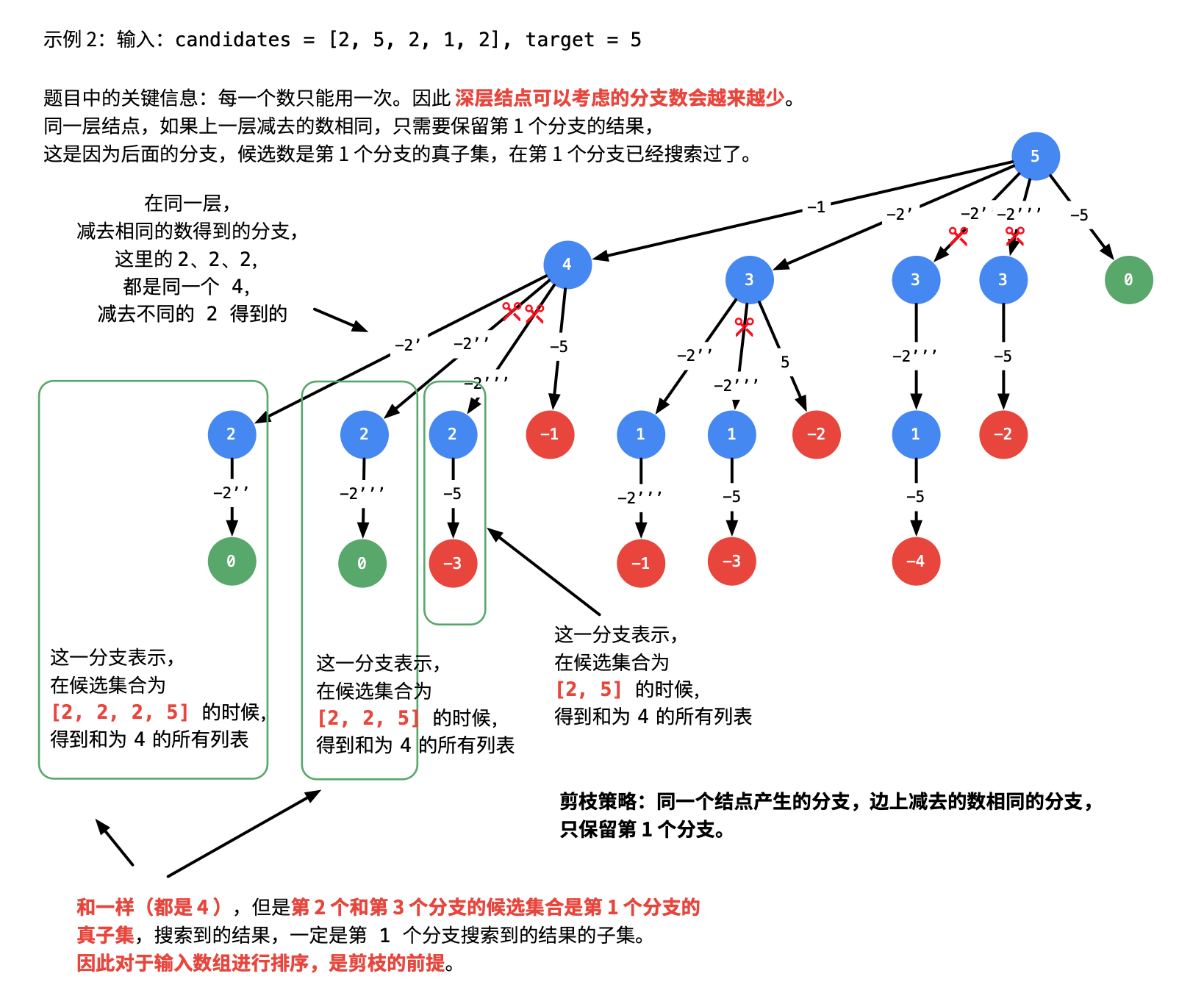

代码:
class Solution {
public List<List<Integer>> combinationSum2(int[] candidates, int target) {
List<List<Integer>> res = new ArrayList<>();
if(candidates.length == 0){
return res;
}
Arrays.sort(candidates);
Deque<Integer> path = new ArrayDeque<>();
dfs(candidates,0,target,path,res);
return res;
}
private void dfs(int[] candidates, int begin, int target, Deque<Integer> path, List<List<Integer>> res) {
if(target == 0){
res.add(new ArrayList<>(path));
return;
}
for(int i = begin; i < candidates.length;i++){
if(target - candidates[i] < 0){
break;
}
if(i > begin && candidates[i] == candidates[i-1]){
continue;
}
path.addLast(candidates[i]);
System.out.println("递归之前 => " + path + ",剩余 = " + (target - candidates[i]));
dfs(candidates,i+1,target - candidates[i],path,res);
path.removeLast();
System.out.println("递归之后 => " + path + ",剩余 = " + (target - candidates[i]));
}
}
} 
[1,1,2,5,6,7,10]
递归之前 => [1],剩余 = 7
递归之前 => [1, 1],剩余 = 6
递归之前 => [1, 1, 2],剩余 = 4
递归之后 => [1, 1],剩余 = 4
递归之前 => [1, 1, 5],剩余 = 1
递归之后 => [1, 1],剩余 = 1
递归之前 => [1, 1, 6],剩余 = 0
递归之后 => [1, 1],剩余 = 0
递归之后 => [1],剩余 = 6
递归之前 => [1, 2],剩余 = 5
递归之前 => [1, 2, 5],剩余 = 0
递归之后 => [1, 2],剩余 = 0
递归之后 => [1],剩余 = 5
递归之前 => [1, 5],剩余 = 2
递归之后 => [1],剩余 = 2
递归之前 => [1, 6],剩余 = 1
递归之后 => [1],剩余 = 1
递归之前 => [1, 7],剩余 = 0
递归之后 => [1],剩余 = 0
递归之后 => [],剩余 = 7
递归之前 => [2],剩余 = 6
递归之前 => [2, 5],剩余 = 1
递归之后 => [2],剩余 = 1
递归之前 => [2, 6],剩余 = 0
递归之后 => [2],剩余 = 0
递归之后 => [],剩余 = 6
递归之前 => [5],剩余 = 3
递归之后 => [],剩余 = 3
递归之前 => [6],剩余 = 2
递归之后 => [],剩余 = 2
递归之前 => [7],剩余 = 1
递归之后 => [],剩余 = 1
输出 => [[1, 1, 6], [1, 2, 5], [1, 7], [2, 6]]


